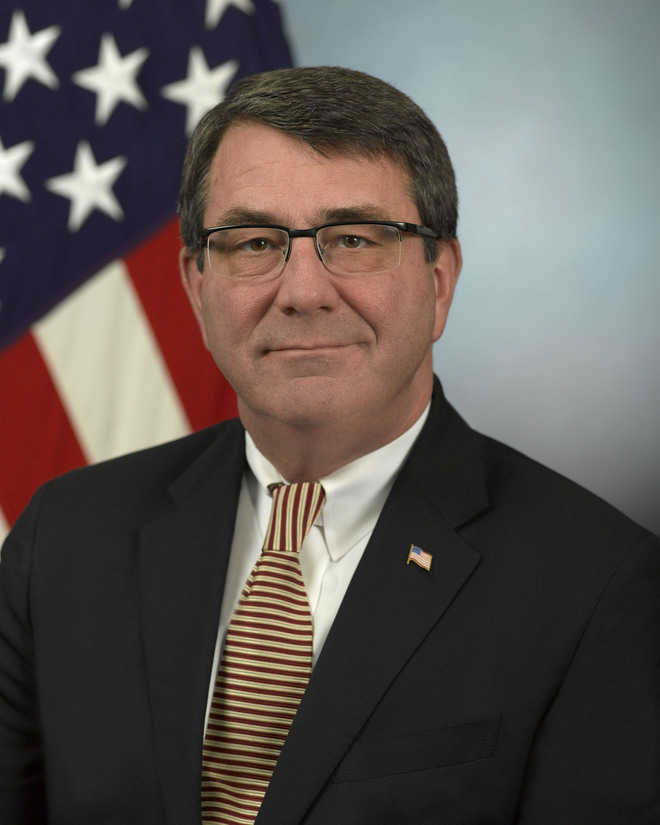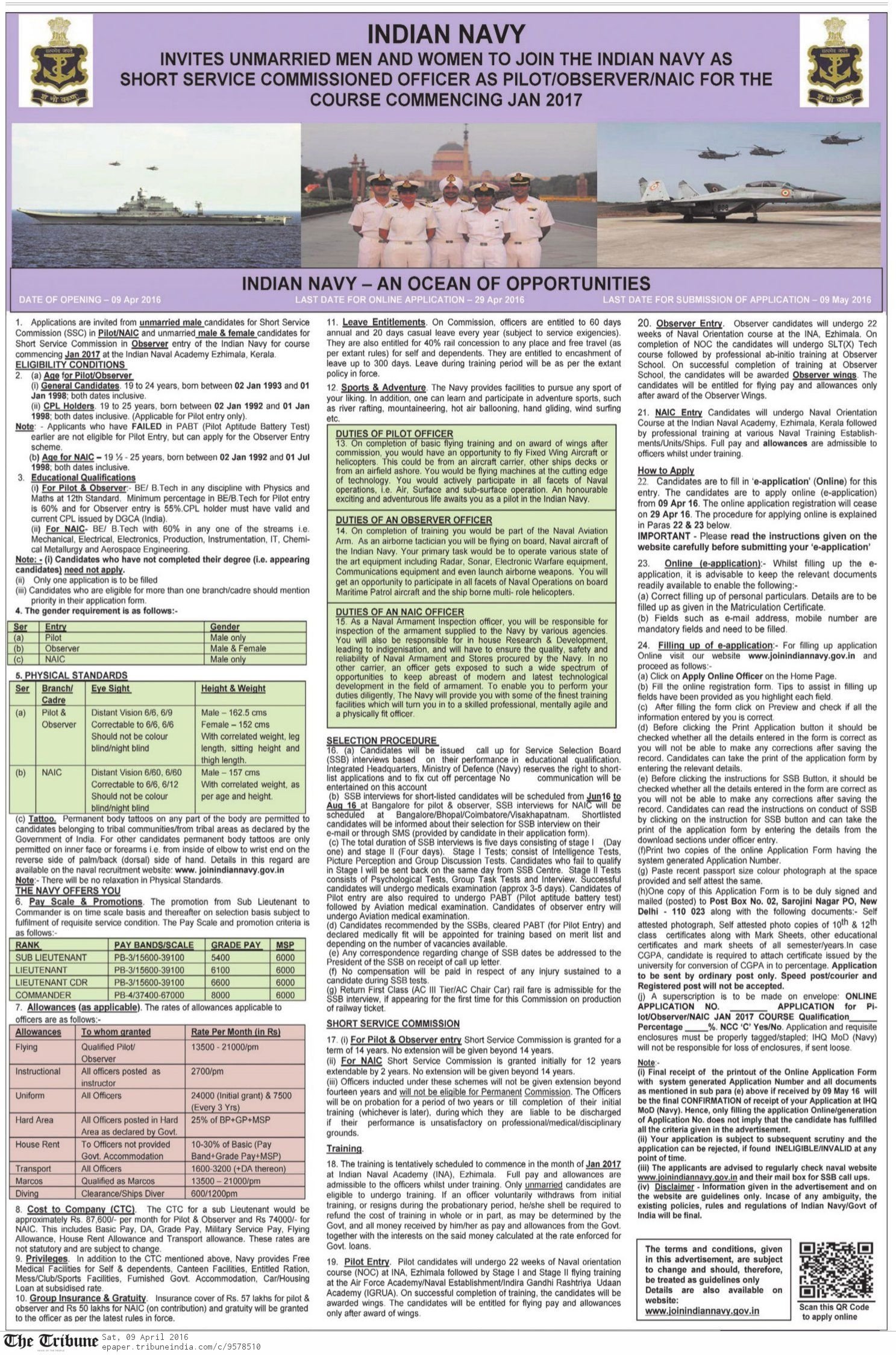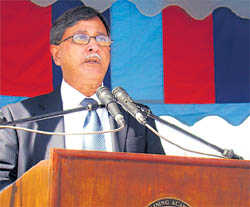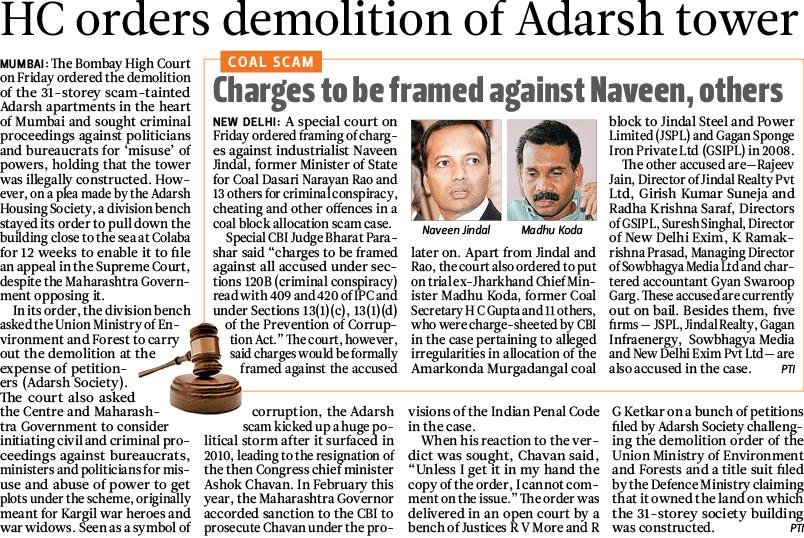
US Defence Secretary Ashton Carter
New York, April 9
India is a “very influential and powerful player” in the Asia Pacific and is going to play an ever increasingly role in the region, US Defence Secretary Ashton Carter has said on the eve of his visit to India during which “exciting new projects” will be discussed to boost Indo-US strategic ties.
“India is already a very influential and powerful force in the whole Indo Asia Pacific region, starting with the Indian Ocean,” Carter told PTI.
He said that his three-day trip to India, beginning tomorrow, would be an important step in the implementation of some of the key decisions being taken by US President Barack Obama and Prime Minister Narendra Modi in the last two years.
However, Carter remained tight-lipped on the decisions to be taken during his India trip that would take him to Goa and New Delhi.
“We will talk about exciting new projects, the details of which I cannot got into this afternoon,” the Defence Secretary told a New York audience before the Council on Foreign Relations (CFR) yesterday for which he specially flew to the Big Apple to give a key policy speech on Asia Pacific.
Obama Administration’s “Asia Pacific rebalance” and Modi Government’s “Act East Asia” is what Carter described to the New York audience as “strategic handshake”, between the two largest democracies of the world.
“Obviously it (India) is going to play an ever-increasing role, a very positive role because of the values it stands (for).., championing of a co-operative approach to security,” Carter said in response to a question.
The Defence Secretary acknowledged that India’s “influence stems all the way around, South East Asia and into East Asia”, and also referred to the close relationship it now has with Japan in the Asia Pacific region.
Carter, who has played a key role in this new phase of India-US defence relationship – which started in his previous capacities at the Pentagon – believes that India-US relationship is destined to be one of the most significant partnerships of the 21st century.
And his second visit to India, in less than a year, is aimed to realise that, he said.
“It’s (India trip) to take some very important new steps and to implement what the President and the Prime Minister agreed last year and the (defence) framework (agreement) that I signed with Minister Parrikar last year,” Carter said.
Carter said the Defence Technology and Trade Initiative (DTTI), which was started in 2012 in his previous stint at the Pentagon, “grasps hands” with Modi’s “Make in India” campaign to expand the nation’s industrial and defence base.
“In the area of the DTTI, in the area of joint military exercises and activities, we would have the opportunity in a very tangible and significant way to signify our co-operation,” he said.
Carter said that enhanced co-operation in the maritime security would be another key feature of his India trip.
At the invitation of his Indian counterpart Manohar Parrikar, Carter would be spending nearly two days in Parrikar’s home town Goa.
“I would be visiting western naval base,” he said, adding that last year he had visited the eastern naval base.
When Parrikar was in the US in December last year, Carter took him to a nuclear-powered air craft career and the two leaders spend nearly one day.
His Goa trip is also expected to be marked by the India visit of USS Blue Ridge.
“The fact that there is a US navy vessel in port at the exact time, nothing could signify better close co-operation between us,” Carter said.
After spending two days in Goa on April 10 and April 11, Carter would fly to New Delhi where among others he would meet Prime Minister Modi and the National Security Advisor Ajit Doval.
Without going into details, he said the two countries would also be concluding several important agreements, including one on commercial shipping information exchange, which will “make many new things possible” in the future.
“US India relationship has grown incredibly over the past several years. And of course, Secretary Carter takes a strong personal interest in US-India defence relationship,” a senior defense official said, adding that Carter has a close personal relationship with Parrikar.
“That’s why he is going to the Minister’s home town of Goa,” he added.
The US is very interested in exploring the possibilities of co-production of fighter aircrafts and the issue is being discussed with India, the senior defence official said when asked about news reports of talks on manufacturing of fighter jets in India.
India, the official said, has also expressed interest in buying armed drones from the US.
Under the Modi Government, the defence official on condition of anonymity said there has been strong progress in bilateral relationship.
The scope and depth of US-India defence ties has become much stronger, he said in response to a question. — PTI







































































